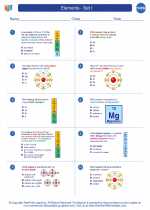Thyroid Gland
The thyroid gland is a small, butterfly-shaped gland located in the front of the neck, just below the Adam's apple. It plays a crucial role in regulating metabolism, growth, and development in the body.
Anatomy of the Thyroid Gland
The thyroid gland consists of two lobes connected by a narrow band of tissue called the isthmus. It is made up of millions of tiny follicles that store and produce thyroid hormones.
Function of the Thyroid Gland
The primary function of the thyroid gland is to produce thyroid hormones, including triiodothyronine (T3) and thyroxine (T4). These hormones regulate the body's metabolic rate, heart and digestive function, muscle control, brain development, and maintenance of bones.
Regulation of Thyroid Hormones
The release of thyroid hormones is controlled by the pituitary gland, which secretes thyroid-stimulating hormone (TSH). TSH stimulates the thyroid gland to produce and release T3 and T4, which in turn regulate the body's metabolism.
Disorders of the Thyroid Gland
Imbalance in thyroid hormone levels can lead to various disorders, such as hypothyroidism (underactive thyroid) and hyperthyroidism (overactive thyroid). These conditions can cause symptoms ranging from fatigue and weight gain to rapid heartbeat and anxiety.
Thyroid Gland Study Guide
- Describe the location and shape of the thyroid gland.
- Explain the function of the thyroid gland and its role in regulating metabolism.
- Outline the anatomy of the thyroid gland, including its lobes and follicles.
- Discuss the regulation of thyroid hormones by the pituitary gland.
- Identify and explain common disorders of the thyroid gland, including hypothyroidism and hyperthyroidism.
Understanding the thyroid gland and its functions is essential for grasping the role of hormones in the body and their impact on overall health.
[Thyroid Gland] Related Worksheets and Study Guides:
.◂Chemistry Worksheets and Study Guides High School. Elements - Set I

 Worksheet/Answer key
Worksheet/Answer key
 Worksheet/Answer key
Worksheet/Answer key
